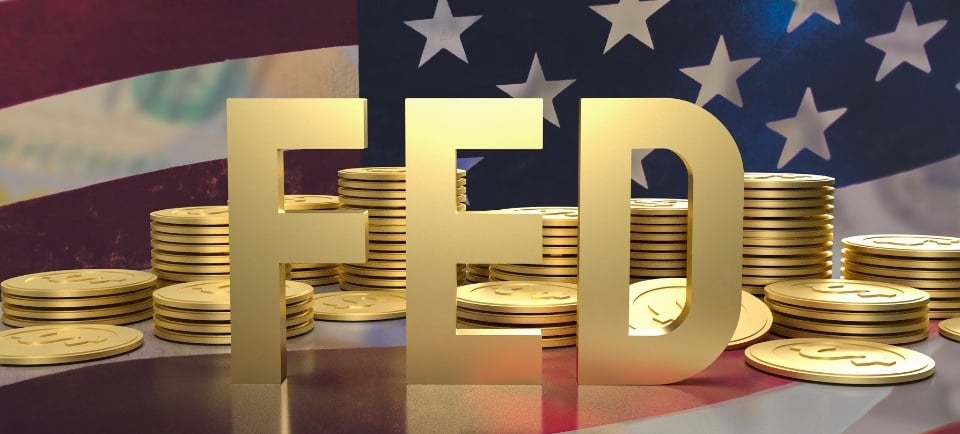BND Scope: Issue 6 – FED Policies, Cripto and OBBB
The U.S. economy is heating up! Will the Fed cut rates? What do Trump’s tariffs and crypto reforms mean for investors? And don’t miss “One Big Beautiful Bill” — the sweeping reform act reshaping America’s future.
BND SCOPE
7/12/20254 min read


While summer heat is being felt intensely, there are also hot developments in the U.S. economy. In this issue, we again have topics that are both promising and require attention. There are crackling voices within the Fed. Trump doesn’t allow markets to relax with new tariffs, and although employment appears strong, caution is advised. There are hot developments in crypto as well—Robinhood is pushing boundaries. Let’s take a look together.
An interesting split is emerging within the Fed. Some officials are saying “cut rates now,” while others are suggesting “let’s not cut at all this year.” No change was made at the June meeting, but whispers suggest a cut may come in the fall.
Goldman Sachs also suggests the first cut might come in September, arguing that the new tariffs might not impact inflation as much as expected.
Another move from the Fed came in the crypto arena: the infamous “reputational risk” rule—causing banks to avoid working with crypto companies—was removed. This quiet change may mark a turning point in the integration of digital assets into the financial system.
Employment Shines, Tariffs Cast a Shadow
Interest Rate Cut: But When?
Employment data was quite positive: 147,000 new jobs were created in June. Unemployment fell to 4.1%. But in the background, the effect of immigration policies on the private sector is being felt.
On Trump’s side, customs tariffs are back. Countries from Canada to Vietnam are facing tariffs ranging from 20% to 70%. These are expected to take effect on August 1. The risks are high, especially for strategic sectors.
Overall, the economy remains strong, but signs of slowdown are emerging on the consumer side. The outlook is bright—but caution is wise.
- Special Report -
One Big Beautiful Bill
America's Most Comprehensive Budget and Reform Package
Passed by Congress and now in effect, the One Big Beautiful Bill Act (OBBB) is more than just a budget bill. Covering everything from taxes to social benefits, education to energy policy, it brings structural changes already underway. Passed through the Senate via reconciliation, this law reshapes America's economic and social direction. We're no longer asking “what might happen,” but “what has changed”—with concrete impacts for investors, entrepreneurs, and people planning to live in the U.S.
Key highlights:
Individual tax cuts from the 2017 Tax Cuts and Jobs Act are now permanent.
Income tax brackets (10%–37%) are preserved.
Child tax credit increased to $2,500 until 2028.
20% tax exemption for small businesses continues.
Estate tax exemption raised to $15 million.
Additional deductions for low and middle-income groups.
HSA contribution limits increased.
New “Trump Accounts” offer $1,000 government-subsidized savings for children born between 2025–2029.
Tax Cuts Made Permanent Health Savings Accounts & "Trump Accounts"

U.S. stock markets are exuberant. Led by AI stocks, the highest capital inflow in the past eight months has occurred—$31.6 billion! While tech and finance lead the way, there’s also continued interest in bond funds. Some take risks, others play it safe.
Meanwhile, Robinhood made a bold move for European retail investors: it now offers 24/7 trading in U.S. stocks through tokenized assets—blockchain-based digital representations.
What does this mean?
An investor in Europe can now invest in Tesla or Apple shares outside regular market hours. And they can do it in a crypto-like way—fast, digital, and without a broker.
This model bridges traditional stock markets and the crypto world. But regulations remain unclear. Until they are clarified, these opportunities come with uncertainties.
S&P and Nasdaq in a Bull Run, Eyes on the Fed
The S&P 500 and Nasdaq won’t stop—setting new records for three days in a row. But as strong data reduces the likelihood of a rate cut, investors are becoming more cautious.
Trade talks, tax packages, and of course, Trump’s pressure on the Fed remain on investors’ radar.
As BND Consulting, we will continue to follow developments in the U.S. economy together. See you in the next issue.
Markets Driven by Artificial Intelligence
New Era for Federal Employees
Clean Energy Incentives Rolled Back
Education Changes
SNAP Reform
Workable age limit raised to 65.
State contributions now mandatory (5%–25%).
Stricter eligibility for immigrants and refugees.
All loan repayment systems streamlined.
Subsidized loans eliminated for new applicants.
Student loan caps set at $200,000.
Workforce Pell Grants encourage job-specific training.
Tax incentives for electric/hybrid cars repealed.
Support for solar/hydrogen energy investments removed.
Major EPA environmental programs ended.
Fossil fuel and public land mining incentives introduced.
Early retirement payments eliminated.
New hires face “more contribution or less security.”
Public health insurance audits tightened.
Federal AI policies expanded: funding for modernization, cybersecurity, data analysis.
Medicaid and ACA Overhaul
Medicaid recipients must work 80 hours/month.
Gender transition procedures no longer covered.
Healthcare access restricted for immigrants with uncertain status.
Conclusion
The One Big Beautiful Bill Act aims to shape not just 2025 but the next decade. Drawn along Republican priorities, this new framework deeply affects American life, social contracts, and investment climate.
For those looking to invest, start a business, or migrate to the U.S., this law offers both opportunities and new boundaries.
All at once:
Fed uncertainty
Trump’s tariffs
Crypto volatility
A shifting financial landscape
…point to a time when investors should remain alert.
In the coming weeks, we’ll be watching:
Fed’s rate decision at the end of July
Tariffs going into effect on August 1
Will Trump’s new tax cuts pass in Congress?
How will crypto’s new access to banking reshape U.S. finance?
Consulting
Join
info@bnd.consulting
+1 (832) 270-5239
© 2024. All rights reserved.

800 Bonaventure Way Ste 116 Sugar Land TX 77479
